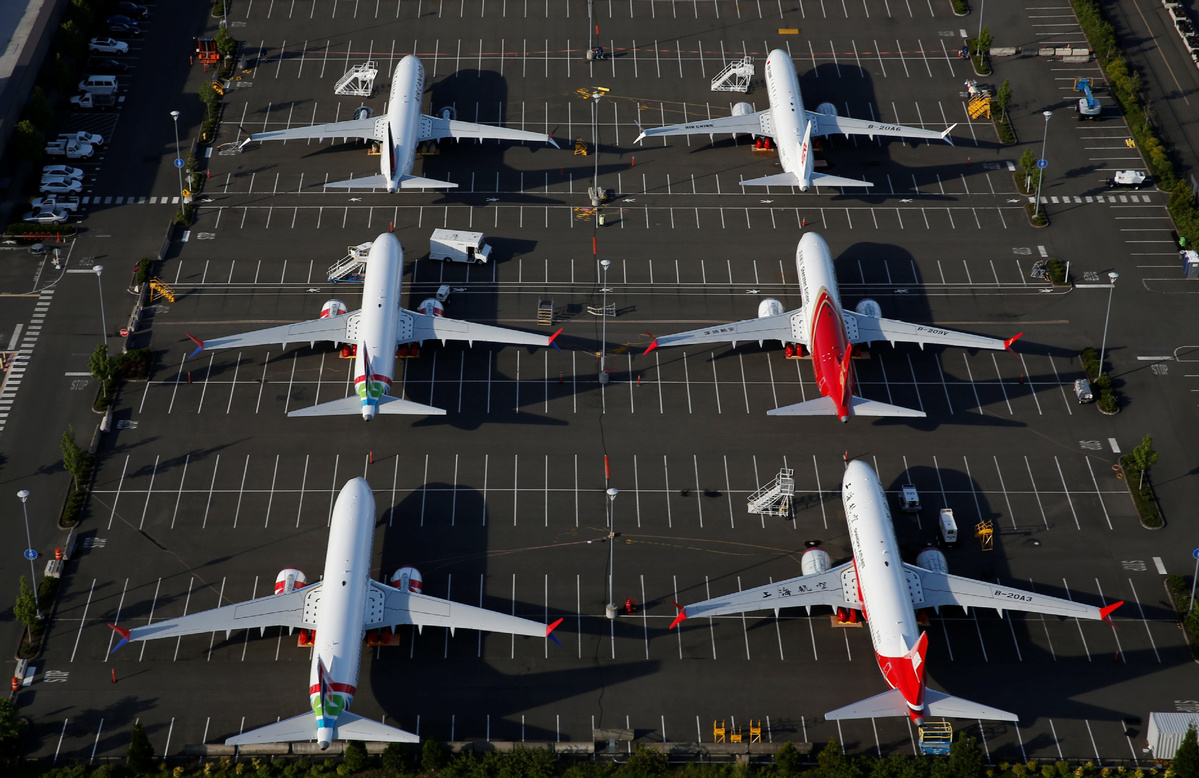Boeing delays production of 737 MAX jet


Boeing will slow production of the 737 MAX jet to avoid a glut of unsold planes amid the worldwide slowdown in air travel due to the novel coronavirus pandemic.
The aircraft builder has directed Spirit AeroSystems, builder of fuselages for the MAX, to stop work on four MAX jets and to delay construction of 16 additional planes.
"Spirit believes there will be a reduction to (the) previously disclosed 2020 737 MAX production plan of 125 shipsets," the subcontractor said in a statement.
A shipset includes all work done on a fuselage by the subcontractor. The fuselages are transported by rail from Spirit's factory in Wichita, Kansas, to Boeing's plant near Seattle for final assembly.
Boeing temporarily halted production of the MAX in January and resumed production in May.
Initially Boeing planned to build 52 MAX jets a month and then boost production to 57. It's unclear how many jets it now plans to produce, but analysts estimate about 30 per month.
Boeing had delivered about 380 new MAX jets before halting production following the March 2019 worldwide grounding of the plane that killed a total of 346 people in two crashes.
About half of the world's fleet of 14,000 jets has been stored following the collapse in demand for air travel. As a result, many carriers have canceled orders for new jets. Boeing has delivered about 60 planes this year.
Many carriers had planned to replace older jets with the new, fuel-efficient MAX. But it's now unclear if passenger traffic, despite showing the first signs of rebounding, would support the upgrade. Boeing's decision to slow production is its response to the uncertainty.
Boeing hopes the MAX will be recertified for commercial service this year, but the US Federal Aviation Administration has said there is no deadline for approval.
CNBC reported that Boeing plans to participate in the recertification flight or flights this month. Neither Boeing nor the FAA would comment. No date for the tests, if scheduled, has been disclosed.
It's unlikely Boeing would conduct the test flights if it had not fulfilled all requirements for recertification because failure would be another blow to its reputation.
Investigators believe the MAX's automated anti-stall device, called Maneuvering Characteristics Augmentation System (MACS), erroneously pointed the nose of the planes down to avoid a midair stall and into a fatal plunge leading to crashes in Indonesia and Ethiopia.
The new, heavier engines on the MAX were moved closer to the fuselage, and that changed the in-flight handling characteristics of the plane. At times, the nose of the plane pitched up, which could lead to a mid-air stall. Boeing added the MCAS to compensate.
Boeing has updated the system's software, but the FAA hasn't yet approved it.
In January, Boeing reported a loss of $636 million in 2019, compared with a profit of $10.46 billion in 2018 – its first annual loss in more than 20 years.

































